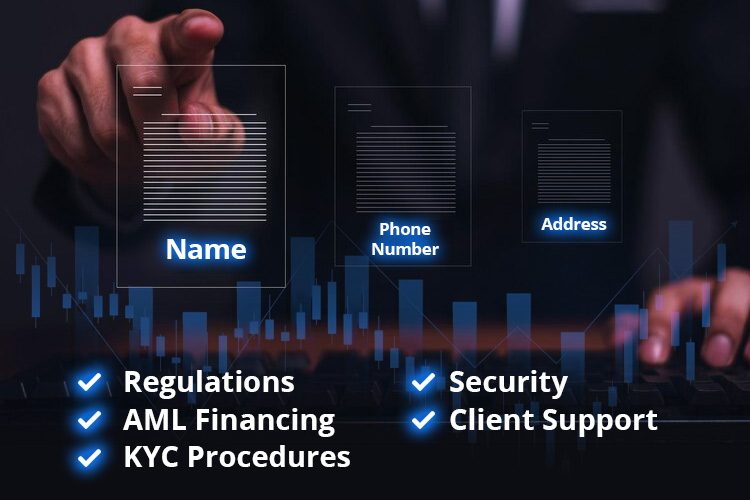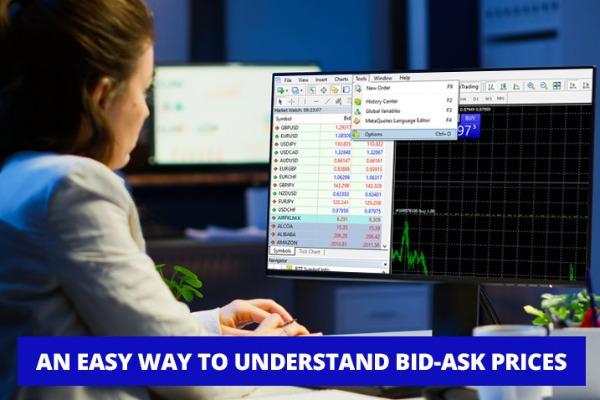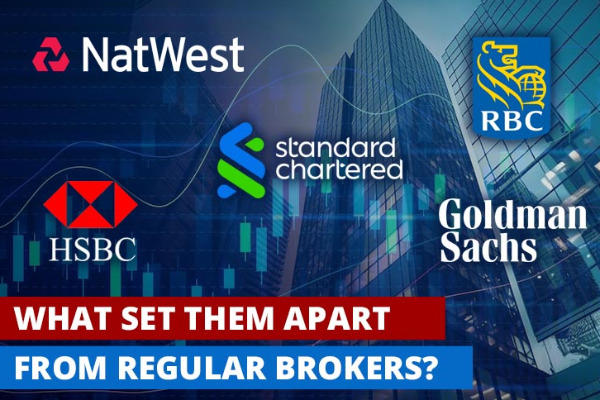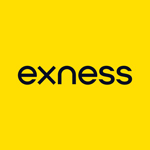For beginners, being asked about personal identities can be irksome and worrying in regard to personal data safety. Yet, this actually has something to do with the broker and trading safety itself.

Personal Information, as the name suggested, is private and tends to be confidential. Only certain circumstances are allowed to legally unlock it, including those during forex transactions.
However, why do brokers need to know traders' personal information?
In a nutshell, they need to know traders' complete information because:
- They should comply with regulations.
- They are urged to avoid sanctions on AML Financing.
- They must run KYC procedures.
- They have a responsibility to enforce security.
- They need to improve client support.
To understand the situation better, this article will elaborate on why such a requirement emerges behind it.
To Comply with Regulations
Brokers' and traders' activities are highly observable around the globe. These delicate activities (including transactions and operations) are subject to regulations in different jurisdictions. That's why brokers need clients' information.
For example, the European Security and Markets Authority (ESMA) stipulate rules for the financial market in the framework of safeguarding risks where they work closely with the European Banking Association (EBA) to improve the face of the industry.
Such rules include supervision, risk assessment, and restrictions over the activities of brokers and traders.
The following table describes several examples of regulatory bodies relevant to forex trading.
| Countries | European Union | Germany | France | United Kingdom | United States of America |
| Regulatory Bodies | MiFID II | BaFin (under the directives of MiFID II) | Banque de France (under the directives of MiFID II) | The Financial Conduct Authority (FCA) | The Securities and Exchange Commission (SEC) |
| Objectives | Making E.U. markets safer, more transparent, and efficient by harmonizing regulation across E.U. financial markets. | Being an independent regulator for brokers, investment funds, stock markets, and other financial and insurance companies. | Overseeing a wide variety of financial organizations, including forex brokers, financial institutions, insurance companies, and other services to financial markets. | Regulating forex and brokerage firms and enforcing strict oversight to ensure no fraud or money laundering in the market. | Being a federal government agency that regulates brokers-dealers, security exchanges, and Initial public offerings. |
Each commission has different sets of standards, but in general, brokers are typically required to fulfill these conditions to be regulated:
- Suitability Requirements
According to the regulation of SRO or Self-Regulatory Organizations, a broker must have a good reason to think that recommending customers a specific instrument is appropriate. The customer's risk tolerance, financial condition (income and net worth), financial needs, and investment goals must all be taken into account by the broker in this regard. - Record-Keeping Requirements
According to Securities and Exchange Commission (SEC) Rule 17a-3(17), brokers must keep a record for each account with a specific customer that contains several things. Starting from the name of the customer, tax identification number (such as a Social Security number), address, telephone number, date of birth, occupation and employment status with a brokerage firm, annual income, net worth (not including the value of a primary residence), to investment goals for the account.
Brokerage firms may include this in a customer's account statement and have some discretion over how they distribute information to the customer.
Additionally, by requiring recordkeeping, brokers will have an accurate grasp of the financial status and investing goals of their traders.
To Avoid Sanctions on AML Financing
The United Nations will impose sanctions on those dealing with terrorist organizations as well as politically exposed persons (PEPs) of sanctioned and embargoed countries.
If information is available, a sanctioned person's passport and identity number are included on the sanction list. PEP may invite risks to brokers, taking the form of terrorist financing, money laundering, and bribery & corruption risks.
Additionally, affluent and powerful PEPs could be hesitant to give complete identity verification and customer due diligence (CDD) information. PEPs may also obtain illicit funds and open several brokerage accounts to conceal their intentions.
For high-risk clients like PEPs, identification, and verification of wealth and financial sources are strongly required.
For example, the USA Patriot Act of 2001 requires brokers to verify the identity of anyone intending to open an account. Brokers are also required to assess whether the person is listed on the suspected or factual terrorist organizations.
This verification includes questioning the customer's name, address, identification number, and date of birth. Other information may subsequently be drawn should it be a necessity for further investigation.
More information about this verification process will be addressed in the following part.
To Run KYC Procedures
A series of regulations dwell in the forex industry. The implication of such regulations will be translated into procedures, one of which is the KYC procedures.
When money is moved between two parties, brokers must be aware of who they are dealing with. To do so, individuals should provide the following KYC information:
- Full name (first, middle, and surname)
- Date of birth
- Residential or business address
- Proof of address such as utility bill, etc.
- Passport number, nationality, and country of issuance
- The secondary form of identification i.e. driving license, national identity document
Briefly, there are three reasons why KYC is very important for the company: compliance with regulatory requirements, fraud risk mitigation, and more trust and confidence among the customers.
Based on this information, brokers should assess the eligibility of the customer. Brokers may benefit from KYC which reduces the chance of fraudsters registering under false, stolen, or fictitious identities.
To Enforce Security
There is another reason why brokers need to know traders' personal information. As the securities sector runs on a dynamic stage full of risks, more opportunities are open for fraudulence.
Taking this opportunity, some people may use it for terrorist financing, money laundering, fraud, market manipulation, and insider trading.
Changes in share ownership and complex business ownership arrangements might create problems with transparency. Offshore tax havens are frequently used to evade or avoid paying taxes and transfer wealth.
Other techniques include opening many accounts, "pump and dump" scams, boiler room operations, and using stock exchanges to deposit long-term cash.
To sum up, there are five types of fraud in securities, namely scams through software, spread manipulation, managed accounts, Ponzi or pyramid schemes, and boiler room scams; all of which can be minimized by keeping traders' personal information.
To Improve Client Support
Knowing client information helps brokers effectively communicate with their clients. They can provide regular updates on the performance of investments, market trends, and any relevant changes in regulations or investment strategies.
By maintaining client information and leveraging it appropriately, brokers can foster trust, enhance communication, and provide personalized services that cater to the unique needs of each client.
This ultimately leads to stronger client relationships and better outcomes in the investment process.
Conclusion
One of the primary gateways to the world's capital markets and financial system is exchanges and brokers. This gives criminals plenty of chances to commit crimes and take advantage of the system to their financial advantage.
In response to such threats, the local and international governments and financial institutions, based on the same principles, provide regulations in the forex industry.
Without any doubt, brokers need to stand firmly in these situations. Therefore, applying the procedure of Know Your Customer or KYC evidences their commitment to providing a safe environment to trade.
Now that you know asking for traders' personal information is just a broker's safety measure required by regulators, you may be curious about other efforts applied to ensure your safety. There's a feature called negative balance protection that you may need to learn of.

 Dedicated FREE FOREX VPS
Dedicated FREE FOREX VPS Free FOREX Virtual Private Server
Free FOREX Virtual Private Server MT4 Demo Contest, Get $500
MT4 Demo Contest, Get $500 Sign Up for an Account, Claim 60% Deposit Bonus
Sign Up for an Account, Claim 60% Deposit Bonus Free MT4/MT5 VPS 2024
Free MT4/MT5 VPS 2024 Send E-mail and Get Free Merchandise
Send E-mail and Get Free Merchandise $1K Refer a Friend Bonus for Pepperstone Pro clients
$1K Refer a Friend Bonus for Pepperstone Pro clients Maximize Your Earnings with 100% Deposit bonus
Maximize Your Earnings with 100% Deposit bonus Trade to Win, $5,000 Monthly Demo Contest
Trade to Win, $5,000 Monthly Demo Contest Claim 30% + 15% Deposit Bonus from LiteFinance
Claim 30% + 15% Deposit Bonus from LiteFinance











